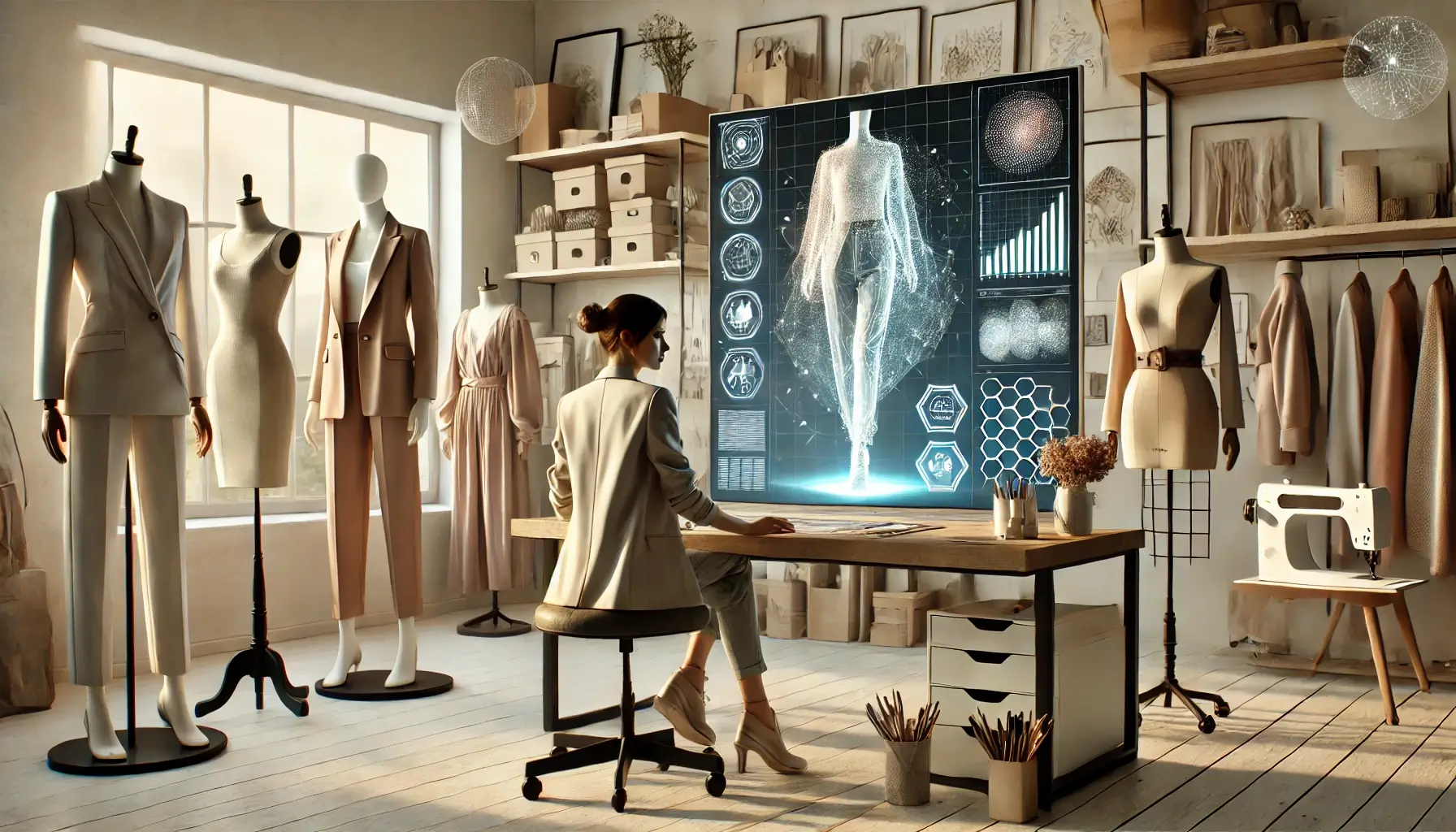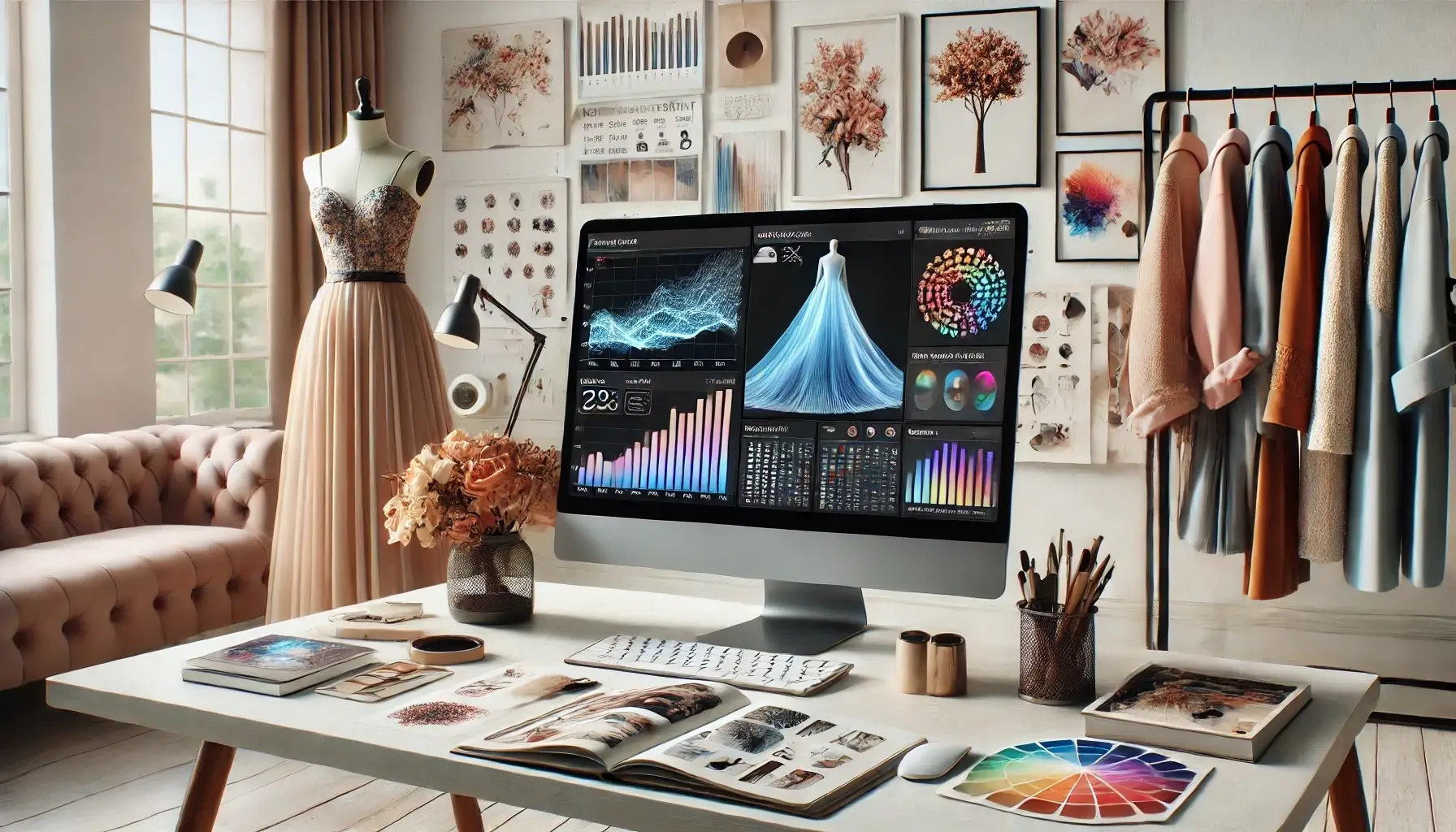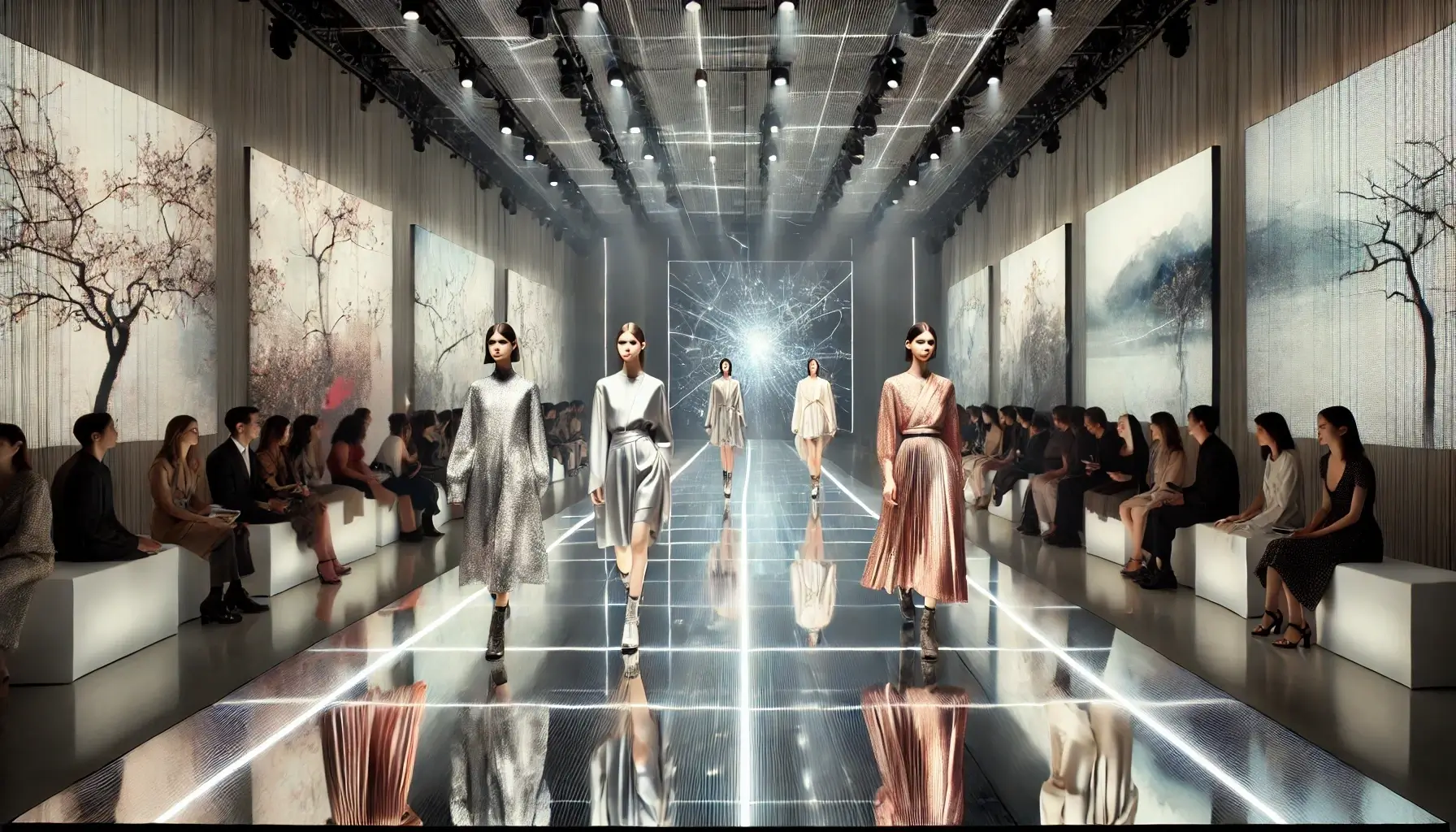AI's role in fashion has rapidly evolved, leading to significant advancements in fashion technology, trend forecasting, and more. This transformation is redefining how brands approach fashion design and engage with consumers. This dynamic confluence leverages advanced technologies to enhance various facets of fashion, from design and manufacturing to marketing and customer experience. Initially, AI was employed to streamline design processes and improve trend forecasting, but its role has rapidly expanded. Today, AI-driven solutions forecast fashion trends, optimize supply chains, and personalize shopping experiences by analyzing vast amounts of social media data. This AI-powered fashion design approach allows brands to stay ahead in a competitive industry.

AI's impact on fashion trend forecasting is noteworthy, offering brands new opportunities to predict and respond to consumer preferences with greater precision. Traditional methods like trade shows and historical sales analysis are being replaced by AI algorithms. These algorithms process and interpret social media signals to predict fashion trends with remarkable accuracy. Innovative trend forecasting platforms, such as T-Fashion, exemplify this shift, using deep learning to analyze millions of images and provide actionable insights to fashion brands.
AI's integration into fashion extends to enhancing consumer engagement through innovative technologies like virtual try-ons and augmented reality (AR). These advancements allow consumers to visualize how garments will look and fit without physical try-ons, enhancing the online shopping experience and reducing return rates.
Key Applications of AI in Fashion Technology
The continuous advancements in AI technology, including improvements in diffusion models that enhance image resolution, indicate a promising future for its application in fashion. As the industry embraces these technological innovations, the potential for AI to transform fashion design, production, and marketing remains vast.
The integration of Artificial Intelligence (AI) in the fashion industry has led to significant advancements and novel applications across various facets of the industry. These applications range from design and manufacturing to customer experience and marketing.
Design and Manufacturing are being revolutionized by introducing tools that facilitate the creation, iteration, and production of unique fashion items. Direct manufacturer integration provided by trend forecaster platforms streamlines the path from design to market, pairing each concept with the ideal manufacturer to optimize production processes.
Virtual try-ons powered by AI are enhancing the consumer shopping experience by allowing customers to virtually try on products from the comfort of their homes. This AI-driven innovation in fashion not only improves customer satisfaction but also reduces return rates, contributing to sustainable fashion practices.
Augmented Reality lets customers see how clothes would look on them before making a purchase, providing interactive product demos and immersive displays accessible via smartphones.
Predictive inventory management in the fashion industry is achieved through AI integration into Enterprise Resource Planning (ERP) and Product Lifecycle Management (PLM) systems. This process is closely linked to fashion trend forecasting, ensuring that brands can meet consumer demand efficiently.
Hyper-Personalization and Customer Experience is enabled with AI in fashion ecommerce, analyzing extensive customer data to craft personalized shopping experiences. AI-powered chatbots and virtual assistants guide customers with product recommendations and styling advice tailored to individual preferences, fostering stronger emotional connections and higher conversion rates in ecommerce sales and marketing.
Sustainability is also developed with AI simulations aid in the development of eco-friendly materials by analyzing their properties and performance. This commitment to sustainability appeals to conscious consumers, potentially driving ecommerce sales. Brands and designers can use AI to create more inclusive collections that meet the needs of a broader range of body types, ensuring a better shopping experience for all consumers.
Marketing practices within the fashion industry are being revolutionized by AI. Through the analysis of consumer data, AI enables brands to create highly personalized marketing campaigns that resonate deeply with their target audience. AI-powered chatbots and digital assistants provide personalized assistance, enhancing the customer service experience and ensuring that luxury brands remain accessible to their clients at all times.
These advanced technologies collectively transform the fashion industry by enhancing design workflows, predicting trends, and improving customer experiences, ultimately driving innovation and efficiency.

The Benefits of AI in Fashion: Driving Innovation and Efficiency
Integrating artificial intelligence in fashion offers a multitude of benefits, including advancements in trend forecasting, revolutionizing the way brands operate and engage with consumers. These AI-powered fashion tools provide insights that help brands create products that resonate with their target audience while AI enhances personalized shopping experiences, leading to increased customer satisfaction and reduced product returns.
Some fashion brands have leveraged AI to diversify its model representation and enhance its loyalty program, offering personalized benefits that have significantly increased enrollments, revenues, and app registrations. These personalized benefits include localized discounts based on popular products in specific areas. Furthermore, AI-driven insights enable fashion brands to customize stores to meet the unique needs of local consumers and strategically open new stores where demand is highest.
The integration of generative AI in fashion design also demonstrates significant advantages. For example, AI-generated images have been shown to increase consumers' willingness to pay, especially when the technology is not disclosed. This highlights the impact of AI on consumer perception and value assessment in the fashion market.

Moreover, AI tools facilitate numerous operational efficiencies, from demand forecasting to production optimization. Companies that have integrated AI report substantial increases in sales and reductions in operational costs. This is achieved through automation, enhanced design accuracy, and improved time-to-market for new products.
AI also plays a crucial role in promoting sustainable practices within the fashion industry. By leveraging data-driven fashion decisions, brands can minimize waste and create more eco-friendly products. By optimizing production processes and supply chain management, AI minimizes material wastage and reduces resource consumption. This contributes to the development of environmentally friendly materials and sustainable production methods, aligning with the industry's goals to enhance functionality and performance while reducing environmental impact.
Future Trends in AI and Fashion Technology
As AI technology continues to advance, its role in fashion trend forecasting and the broader fashion industry is set to become even more pervasive and sophisticated. The integration of AI-driven fashion innovations will likely lead to more personalized and sustainable consumer experiences. Future trends point towards increased use of virtual reality (VR) and blockchain technology, as well as the proliferation of AI-generated clothing and virtual fashion shows. These developments promise to further revolutionize how fashion is designed, produced, and consumed, pushing the boundaries of creativity and efficiency.

Developing an AI-based automated fashion design system: reflecting the ...
Revolutionising the Runway: How AI is Redefining Trend Forecasting in ...
The Fashion AI Report 2024 - Available Now
Fashion in the age of AI: From design to customer experience
The Future Of Fashion: Exploring How Artificial Intelligence Is ...
Top Fashion Brands Leveraging Artificial Intelligence in 2024
Best AI Tools for Apparel and Fashion Brands - trymaverick.com
Case Study | The Complete Playbook for Generative AI in Fashion
Unlocking the future of apparel fit and sizing: 5 crucial factors for ...
How fashion brands are using generative AI - Glossy
How Amazon Fashion is using AI to help you find the perfect fit
Artificial intelligence in the fashion industry: consumer responses to ...
Using AI Technology for Fashion Trends Prediction and Demand Forecasting
AI Transforming Fashion: Trends & Forecast Analysis | Newo
Use cases of AI in the fashion industry | by LeewayHertz - Medium
The Ultimate Guide to Using AI for Fashion Design: From ... - LinkedIn
Fashioning the Future of AI with GANs - Analytics Vidhya
Weaving Elegance With Intelligence: How Luxury Brands Are Embracing AI
Artificial intelligence is poised to radically disrupt the fashion ...
Generative AI in fashion | McKinsey
How will AI change the role of fashion designers in 2024?
Fashion Forecasting with AI: Predicting the Next Big Trends
How are AI-generated insights transforming consumer analysis for ...
AI in fashion: Use cases, benefits, implementation and technologies
AI in Fashion Industries: AI Companies Contributing To the Fashion Brands
Watch Generative AI: Practical Use Cases for Fashion, Beauty ... - Vogue
The Year Ahead: How Gen AI Is Reshaping Fashion’s Creativity
Generative Deep Learning in Fashion: The Pinnacles, Perils And Why We ...
